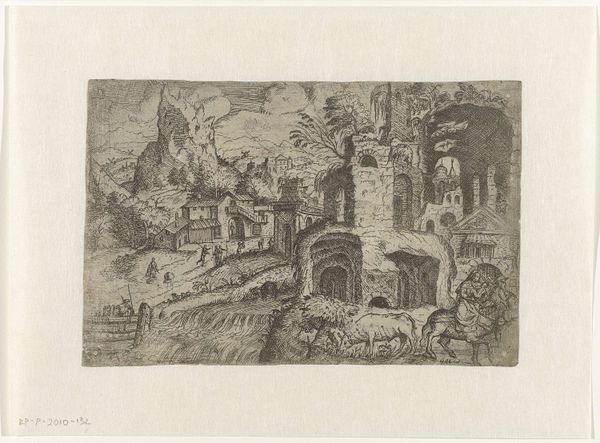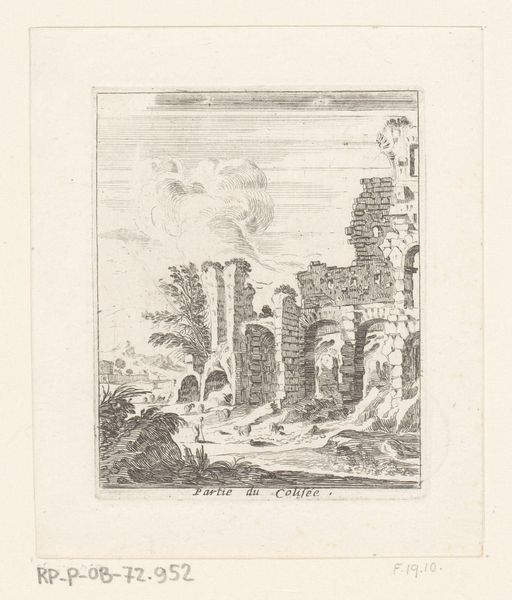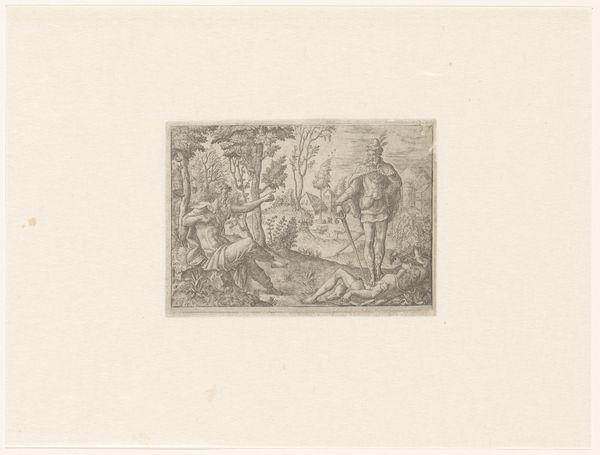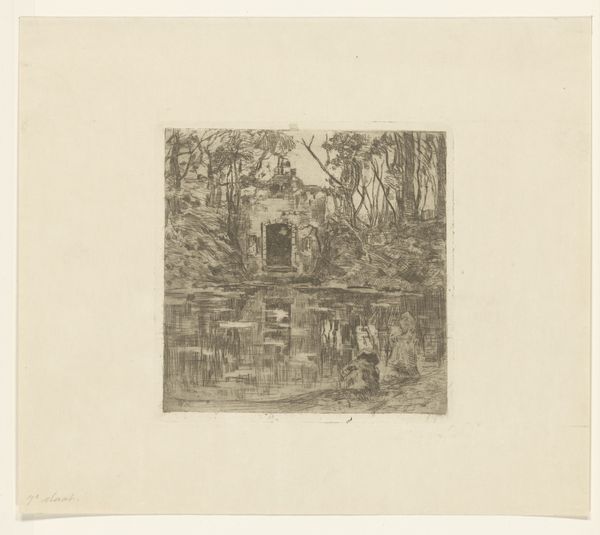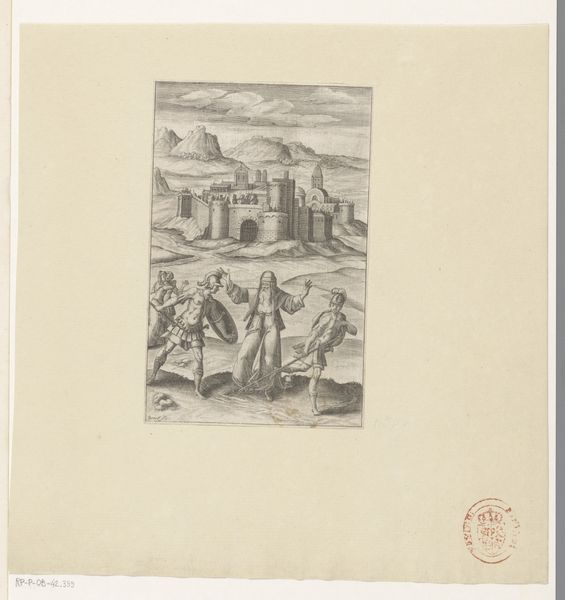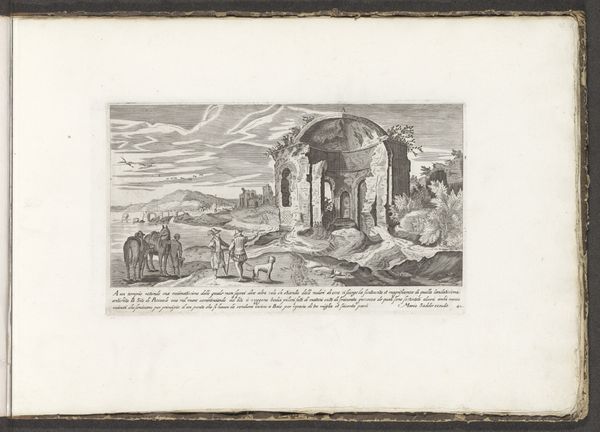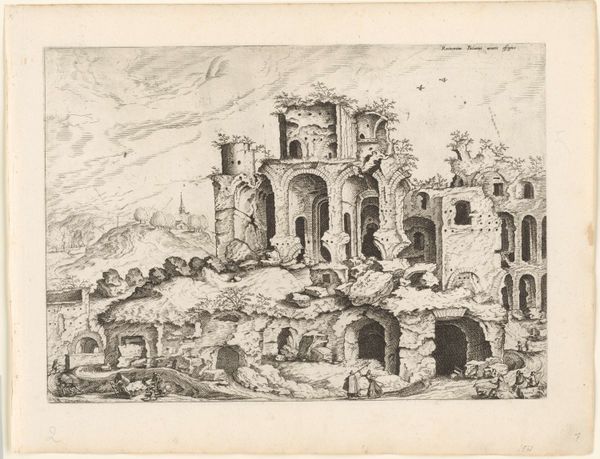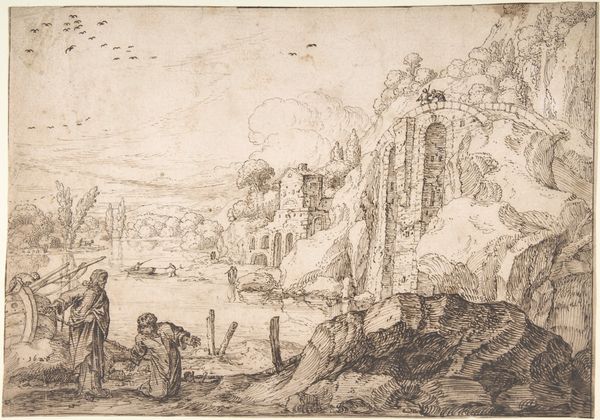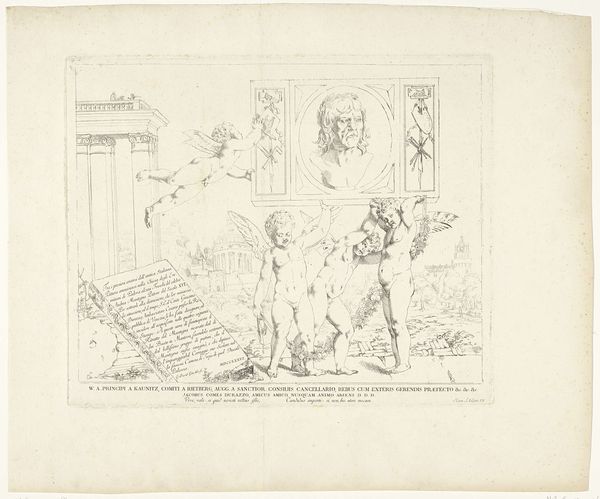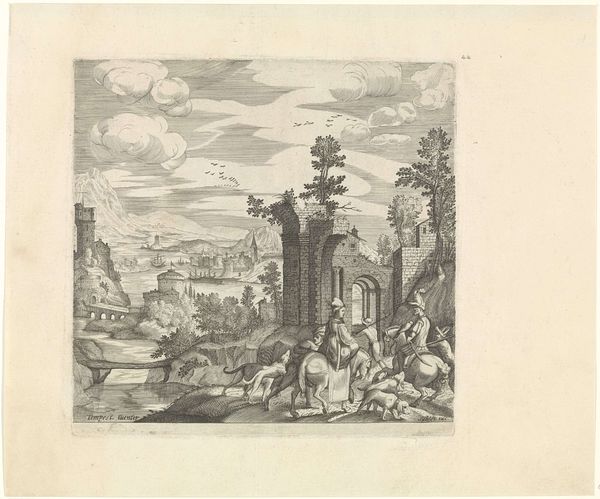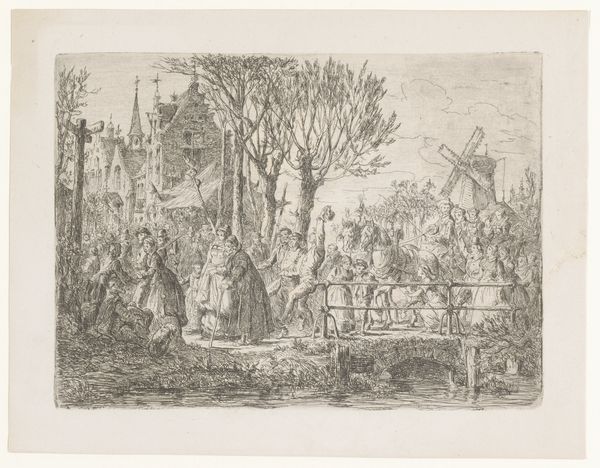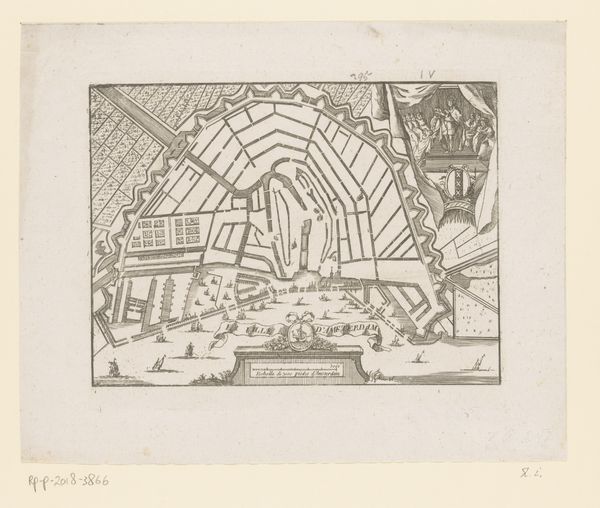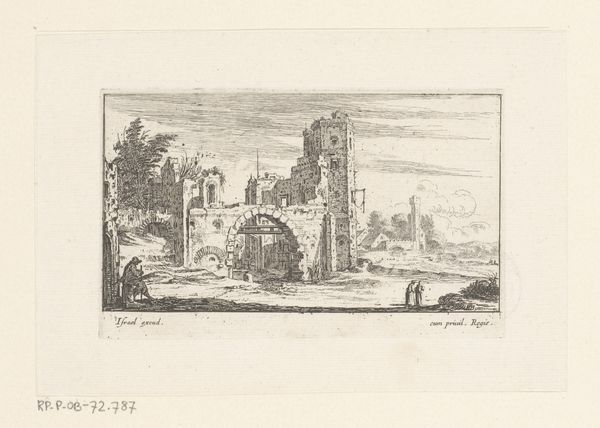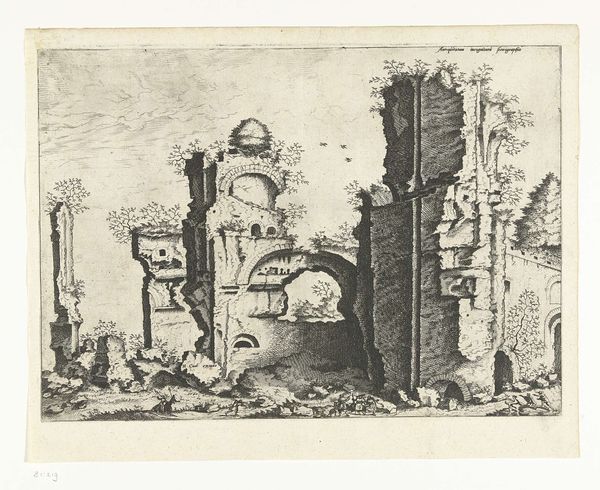
drawing, print, etching, engraving
#
drawing
# print
#
etching
#
old engraving style
#
landscape
#
mannerism
#
figuration
#
history-painting
#
engraving
Dimensions: height 94 mm, width 130 mm
Copyright: Rijks Museum: Open Domain
Angelo Falconetto etched this landscape featuring an old man with a scythe sometime between the late 15th and early 17th centuries. The figure, emblematic of Time or Saturn, sits pensively amidst classical ruins. This scene evokes the "melancholia" that gripped Renaissance thought, contrasting the glory of the classical past with the decay of the present. The scythe is a clear symbol of mortality and the fleeting nature of human endeavors. Saturn’s posture, head in hand, echoes ancient depictions of philosophers and prophets in contemplation. We see this symbol in Albrecht Dürer's "Melencolia I," where the winged figure sits surrounded by tools of creation rendered useless by her brooding introspection. Consider how the recurrence of these symbols across different artistic periods reflects a deep-seated human awareness of time’s relentless march and the inevitable decline of all things. This image speaks to the psychoanalytic concept of the "return of the repressed," where cultural anxieties resurface in visual form, engaging us on a subconscious level. Thus, the image of Saturn—the grim reaper of antiquity—reappears, not as a linear progression but as a cyclical return, each time colored by new cultural anxieties and psychological depths.
Comments
No comments
Be the first to comment and join the conversation on the ultimate creative platform.
